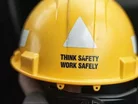Psychology of safe mining: What mine managers need to know

Approaching and implementing safety is somewhat of an enigma in the mining sector. Is it more about applying daily reminders or creating a culture within the organization?
A major indicator of a company’s commitment to safety can be found in their number of accidents. The less number of injuries and fatalities the better. In addition, miners typically use leading and lagging indicators to rate their performance and measure areas of improvement.
• Related content: Top 10: Safest Mining Companies to Work For in Australia
And while it appears safety in the mining industry is reaching new heights, the numbers simply don’t lie. Fatalities continue to be recorded all across the mining sector. In fact, Queensland, Australia – one of the top mining jurisdictions in the world – just recorded its worst year for mine fatalities in two decades.
According to industrial psychologist Corrie Pitzer, mine managers need to dramatically rethink their approach to safety.
"The better we become with managing safety, the worse we become in leading the culture of safety," said Pitzer, president of SAFEmap International, a leading provider of competency based training solutions for the mining, processing and manufacturing industries.
Pitzer said companies spend too much time and resources on small injuries, which leads to damaging ‘fear’. "[It introduces] fear to upset the apple cart, fear to respond and notify when things aren't going right.”
• Related content: Next generation training tool: virtual reality
According to Pitzer, management is a science and leadership is an art, where leaders share their passion and inspire others.
"That's the difference between leading an organization and managing it; when you lead them, you give people the comfort to fail, and you support them when they fail."
The first step to reverse the mining industry’s current trend, according to Pitzer, is to first define safety. "The readiness to respond to risks - if you define it that way, you take completely different ways; if you truly care about people, you make different decisions."
According to Pitzer, human beings are incredibly capable entities, but are treated as stupid when it comes to safety. He believes emboldening workers would achieve different results.
"If we have designed our [safety systems] around the opposition notion - that humans are incredible, humans are awesome - you'd get completely different outcomes; you'd get people inspired, wanting to contribute, and making huge successes happen for the organization," said Pitzer.
Corrie Pitzer is a specialist in behavioral safety and strategic safety management, and is a leading consultant in this field throughout Australia, North America, South America and South Africa. His work is based on extensive research which resulted in his establishing a new concept in safety: (Risk) Competency-based Safety (CBS).
WATCH: [VIDEO] How-To: Fight Fatigue in the Mining Industry
Stay connected! Follow us on Twitter and like us on Facebook
- How Hitachi is Supporting Next-Generation Mining OperationsMachinery
- Focus on: Nickel, a key metal in the EV revolutionSupply Chain & Operations
- Why Nickel Price Slump has hit BHP so HardSupply Chain & Operations
- The Battle for Control of Rare Earth Minerals Supply ChainSupply Chain & Operations



